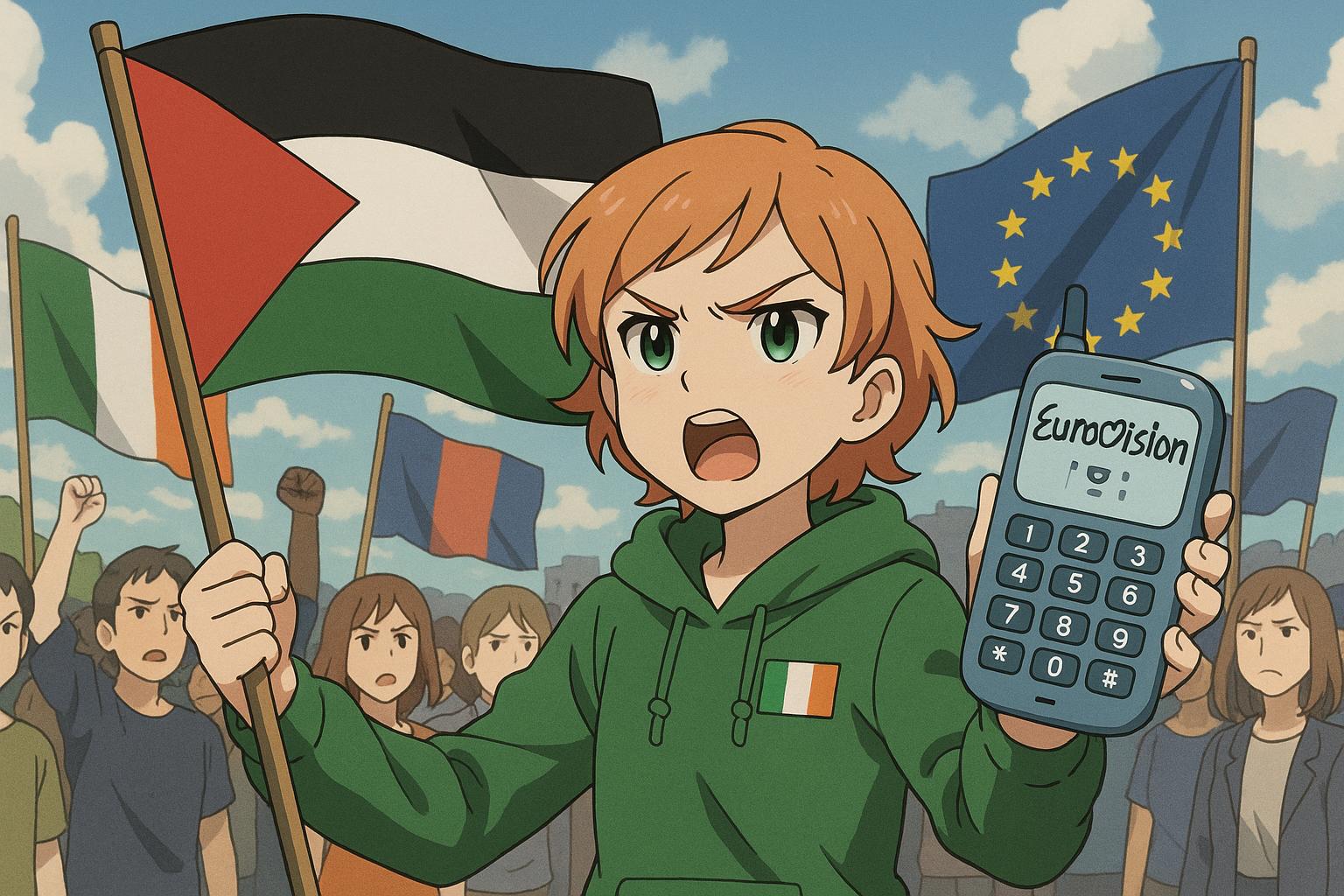In recent weeks, Ireland has witnessed a juxtaposition between public sentiment regarding Palestine and the country's voting behaviour during significant events like the Eurovision Song Contest. A striking example of this occurred when, despite widespread demonstrations advocating for Palestinian rights, the Republic of Ireland awarded Israel a notable 10 points in the Eurovision public vote. This outcome has raised questions about the apparent divide between vocal public opposition to Israel's military actions in Gaza and the voting patterns observed at an international cultural event.
Over the weekend, thousands took to the streets in Dublin and Belfast, rallying against what demonstrators termed the "genocide" in Gaza. As reports indicate, more than 53,000 lives have been lost in the conflict, predominantly among vulnerable populations such as women and children. Protests, like the one held by the Gaels for Gaza in Belfast, focused on raising funds for humanitarian efforts, specifically a mobile maternity unit aimed at aiding those affected by the ongoing violence.
The Irish government's stance on the Palestinian cause has traditionally been robust, with Irish officials, including the Taoiseach and Tánaiste, consistently calling for an end to violence and expressing solidarity with Palestine. Earlier this year, Ireland officially recognised Palestinian statehood, further solidifying its reputation as one of the most outspoken nations regarding the Israeli offensive.
However, in stark contrast to the fervent public demonstrations, Israel's Eurovision representative, Yuval Raphael, received significant support from Ireland, finishing second overall. Campaigners have suggested that this result may misrepresent the true feelings of the Irish public. Zoe Lawson, chairperson of the Irish Palestine Solidarity Campaign, argued that the 10 points awarded to Israel were not indicative of genuine support. She speculated that the unexpected voting outcome could be attributed to sponsored advertisements encouraging multiple votes, as well as possibly skewed participation from a subset of Eurovision enthusiasts who may not reflect broader public sentiment.
Lawson's observations highlight a disconnect. She noted that during recent pro-Palestine actions, there has been overwhelming enthusiasm from the public urging for Israel's expulsion from Eurovision. Statements from protesters calling for a boycott of the contest if Israel remained highlighted a strong current of dissent against the country’s participation in the competition.
The contrasts in sentiments showcased through public demonstrations and the Eurovision voting suggest a complex landscape regarding national opinions on the Gaza conflict. Social media has played a crucial role in these discussions, with many users claiming to have voted multiple times for Israel, further muddying the waters of public opinion. This phenomenon points to a broader conversation about the impact of grassroots campaigning versus popular media events, and how these arenas can produce seemingly contradictory results.
As the Irish public continues to express solidarity with Palestine, the Eurovision incident serves as a poignant reminder that cultural platforms can catalyse important conversations about international relations and national identity. Despite the support visible on the streets, the Eurovision outcome calls attention to the need for clarity in understanding the multifaceted opinions that exist within society. As Ireland's engagement with the issues surrounding Palestine evolves, ongoing discussions will undoubtedly reflect the nation's historical empathy with oppression, framing Ireland’s role on the global stage as both complex and significant.
Reference Map
- Paragraphs 1, 2, 3, 4, 6, 7: Source 1
- Paragraph 2: Source 2
- Paragraph 3: Source 3
- Paragraph 4: Source 4
- Paragraph 5: Source 5
- Paragraph 5: Source 6
- Paragraph 6: Source 7
Source: Noah Wire Services
